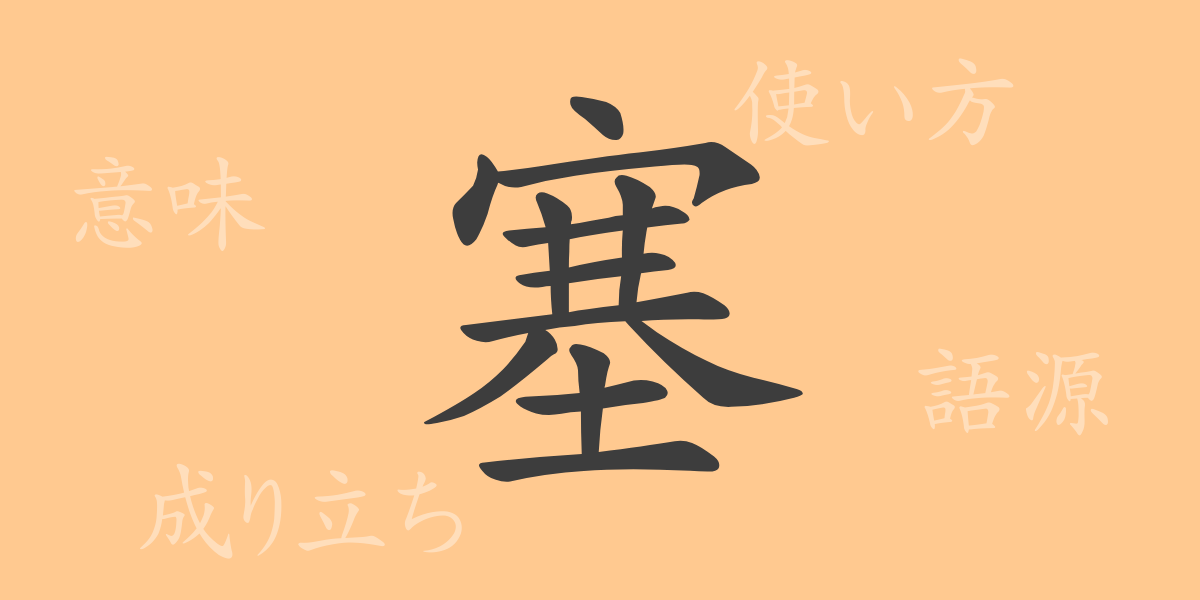Behind the rich expressiveness of the Japanese language lies the deep meaning hidden in each kanji character. This time, we focus on “塞” (sai), a kanji that, while not used frequently in daily life, is one of Japan’s common-use kanji. This article will explore the origins, readings, meanings, usages, and related idioms of “塞” (sai), revealing its full charm.
Etymology of 塞 (sai)
The kanji “塞” (sai) originates from ancient Chinese seal script and was used to signify walls or fortresses made by piling up earth. Its form represents the process of stacking and solidifying earth, embodying meanings of defense and separation. Over time, it also came to signify blocking paths and representing states of stagnation or closure, thus finding use in various expressions.
Meanings and Usages of 塞 (sai)
The kanji “塞” (sai) means “to block” or “to close,” and is used not only for physical objects but also to describe psychological states. For example, “心を塞ぐ” (kokoro o fusagu) means to feel downhearted, while “道を塞ぐ” (michi o fusagu) means to block a path physically. The broad range of meanings carried by “塞” (sai) supports the richness of Japanese expression.
Reading, Stroke Count, and Radical of 塞 (sai)
To correctly understand the kanji “塞” (sai), it is important to know its readings and structural elements.
- Reading: In the on’yomi reading, it is “サイ” (sai), and in the kun’yomi reading, it is “ふさ.ぐ” (fusa-gu) and “とりで” (toride).
- Stroke count: “塞” (sai) has a total of 13 strokes.
- Radical: The radical is 土部 (つちへん, tsuchi-hen), which serves as a clue when looking up related kanji.
Idioms, Phrases, and Proverbs Using 塞 (sai) and Their Meanings
There are many idioms, phrases, and proverbs in Japanese that include “塞” (sai), each carrying unique nuances in different contexts. Here are some examples:
- 心塞ぐ (こころふさぐ, kokoro fusagu): To feel downhearted.
- 塞翁が馬 (さいおうがうま, Saiō ga uma): An expression meaning that fortune and misfortune are unpredictable.
- 要塞 (ようさい, yōsai): A term meaning a key defensive fortification.
Conclusion on 塞 (sai)
Through this article, we hope you have gained an understanding of the multifaceted charm of the kanji “塞” (sai). From its etymology, readings, meanings, and usages, to related idioms, you can glimpse the deep history and culture embedded in this single character. As a common-use kanji in Japanese, “塞” (sai) continues to live on in our language, enabling rich expressions.

























